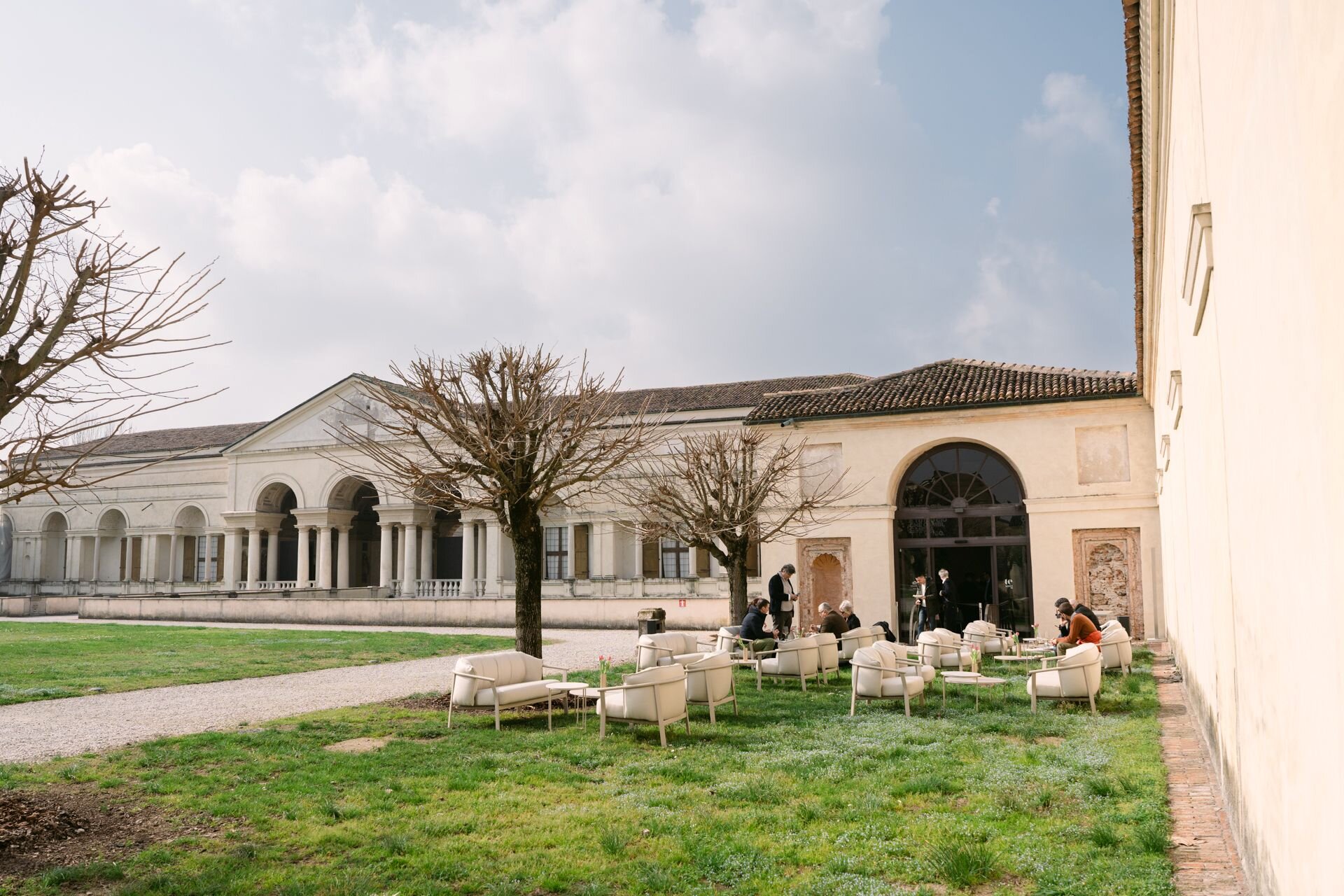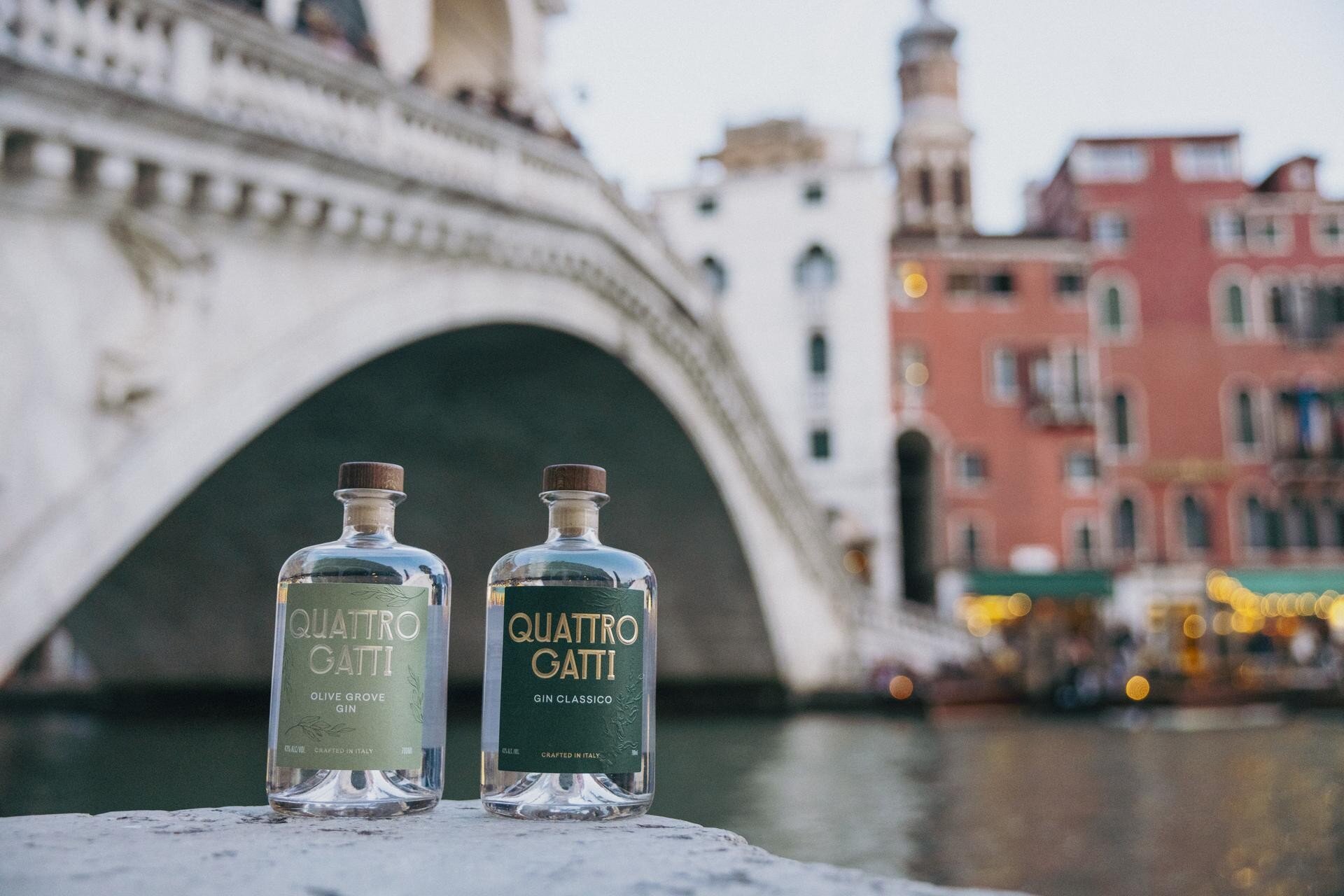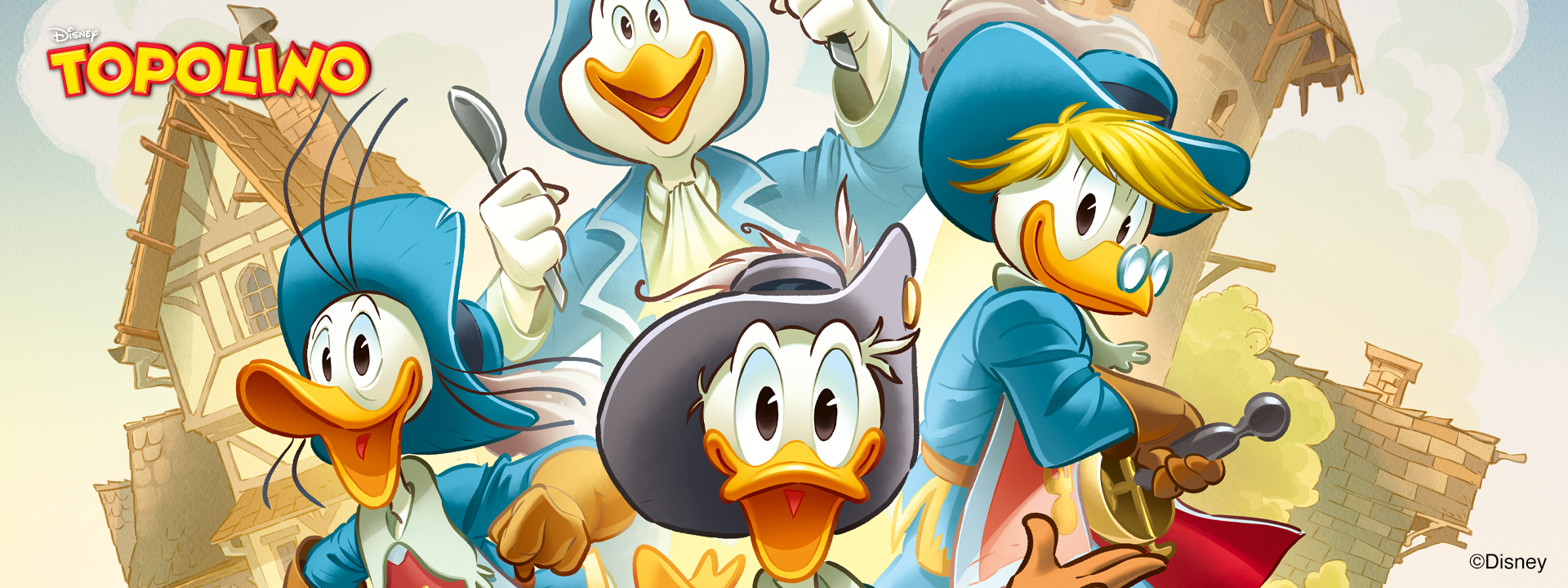
È sorprendente pensare che nel momento in cui stai bevendo una bottiglia di vino si compia anche il gesto finale della sua esistenza: bevi, la bottiglia si svuota, il vino lentamente svanisce. Eppure, è proprio lì, in quel dissolversi, che affiorano — come in un montaggio mentale — i frammenti della storia che lo ha generato: la terra, le mani, le attese, le esitazioni, il coraggio.
Assaggiando i vini di Marko Fon ho pensato a questo. E ho pensato che ci siano forme di espressione che non passano per la parola o per il suono, ma per un gesto concreto, artigianale. Come fare un vino che riesca a trattenere un’idea, un clima, un sentimento.
Dopo averli assaggiati, una Malvasia, una Vitovska o un Terrano non si guardano più allo stesso modo. I vini di Marko Fon ti spiazzano perché arrivano al cuore profondo del vitigno, lo portano a una forma estrema, compiuta. Sono interpretazioni che, più che confrontarsi, impongono una nuova misura.
Marko Fon l’eretico, consapevole che la spasmodica ricerca del guadagno facile sta rovinando anche il Carso (sloveno o italiano che sia); le sue sono scelte radicali, senza compromessi, quattro ettari, cinquemila bottiglie di vino che si vendono subito e per mesi non ci sono entrate, ma nonostante tutto si vive con grande dignità; merce rara di questi tempi, la dignità dei contadini di una volta, che lavorano duro, che con la terra hanno un rapporto di amore e di odio. Per Marko la terra è tutto, l’uomo deve contare relativamente, il vino non può legarsi a un nome, a un marchio; chi verrà dopo di me, dice Marko, deve essere in grado di fare lo stesso vino, è la terra che comanda
La prima volta che sono andato da lui, appena varcata la soglia della cantina, Marko non ha versato vino. Ci ha guardati e ci ha chiesto se avessimo tempo. Tempo da dedicare alla terra, prima ancora che al bicchiere. Tempo per camminare tra i filari, per ascoltare le pietre del Carso, per capire la differenza tra una roccia e l’altra, per accorgerci che gli uccelli non sono intrusi ma parte dell’equilibrio, anche se rubano grappoli interi. È così che si comincia, da lui. Con lentezza, con rispetto. Con l’idea che prima del vino, viene tutto il resto.
Il Carso è terra ed è sangue. Il Carso inizia ad avere i colori dell’autunno già ai primi di settembre: sfumature di giallo, rosso, verde e poi il grigio della pietra a fare da sfondo. Qualcuno potrebbe pensare che tutto questo sia tristezza, invece è dolce malinconia, è ritrovare le proprie radici, anche se sei nato a mille chilometri di distanza, è qualcosa di atavico. Con Marko Fon camminiamo per tutta “Kosminov Dol”, la vigna vecchia, mentre un soffio di vento leggero ci culla. È un vigneto magico il Kosminov Dol, ti rapisce, non ti va di sprecare parole, anzi a un certo quel vento dolce ti avvolge e smetti di parlare del tutto, gli occhi si chiudono senza che tu possa comandarli, ascolti in silenzio, forse per un lungo attimo cogli la vera essenza del Carso.
Ogni volta che vado da lui, capisco quanto sia importante, per noi cittadini smarriti, recuperare il legame con quel mondo rurale che abbiamo quasi dimenticato: tempi, ritmi della natura, fatica, paura, fatalismo, ma anche condivisione, socialità. Marko mi ricorda Danilo Dolci, non a caso Dolci è nato a Sesana, un paesino sloveno a venti chilometri da Brje Pri Kommu, il borgo dove abita Fon. Gli incontri con Marko non sono semplici visite alla cantina o degustazioni più o meno formali; sono veri e propri momenti di maieutica, non ci sono verità preconfezionate, c’è il tuo coinvolgimento diretto, non puoi essere diverso da quello che sei, non qui, non nel Carso di Marko Fon.
Il racconto di Marko sulla Malvasia istriana, ad esempio, dice tutto: “È un vitigno difficile. Non è la Vitovska, richiede attenzione, misura, intuizione. È una pianta che va capita, rispettata, lasciata libera. In cantina è ancora più imprevedibile: può ossidarsi, chiudersi, sorprendere. Poi, un giorno, decide lei che è il momento giusto e te lo dice. È pronta e tu lo capisci.”
La vigna di Marko poggia su una geologia stratificata. C’è la pietra bianca, la stessa di Lipica, usata in scultura. Ma anche la Peskovec, una pietra antichissima che non si può lavorare, segno di un fiume che scorreva qui milioni di anni fa. Oggi è scomparso, sprofondato nel ventre della terra. Come molte storie di questo luogo che è anche ferita. Le sue grotte sono state nascondigli di atrocità umane. Ma oggi, con il vino e il lavoro condiviso, quel dolore trova forse una forma di riscatto. Non dimentica. Ma trasforma. E in questo, il vino — ancora una volta — è strumento e simbolo. Frutto prediletto di una terra aspra e bellissima, che ha ancora molto da raccontare.
In Marko Fon’s Karst: Wine, Stone, Wind
It’s surprising to think that, when you drink a bottle of wine, you’re also witnessing the final act of its existence: you drink, the bottle empties, the wine slowly fades. And yet, it’s precisely in that vanishing moment that fragments of its story surface—like a mental montage: the land, the hands, the waiting, the hesitations, the courage.
Tasting Marko Fon’s wines, I thought about this. And I thought about how some forms of expression don’t pass through words or sound, but through a tangible, artisanal gesture. Like making a wine capable of holding onto an idea, a mood, a feeling.
After tasting them, a Malvasia, a Vitovska or a Terrano will never look the same. Marko Fon’s wines are disarming because they reach into the very soul of the grape variety, pushing it to an extreme, complete form. These are not wines that merely offer an interpretation—they establish a new standard.
Marko Fon the heretic, fully aware that the frantic pursuit of easy profit is ruining the Karst—Slovenian or Italian alike. His are radical, uncompromising choices: four hectares, five thousand bottles that sell out immediately, and then months with no income. And yet, life is lived with great dignity—a rare thing these days, the dignity of old-time farmers who work hard, who have a love–hate relationship with the land. For Marko, the land is everything; man is secondary. Wine must not be tied to a name or a brand. “Whoever comes after me,” Marko says, “must be able to make the same wine. It’s the land that decides.”
The first time I visited him, as soon as we stepped into the cellar, Marko didn’t pour a drop. He looked at us and asked if we had time. Time to devote to the land, even before the glass. Time to walk among the rows, to listen to the stones of the Karst, to learn the difference between one rock and another, to realize that the birds aren’t intruders but part of the balance—even if they steal entire bunches. That’s how things begin with him. With slowness, with respect. With the belief that before wine, comes everything else.
The Karst is earth and blood. It begins to take on the colors of autumn as early as September: shades of yellow, red, green, and the ever-present gray of the stone in the background. Some might see sadness in all this; instead, it’s a gentle melancholy—a reconnection to your roots, even if you were born a thousand kilometers away. It’s something ancestral. With Marko Fon we walk through the entire Kosminov Dol, the old vineyard, while a soft breeze lulls us. It’s a magical vineyard, Kosminov Dol. It sweeps you away. Words seem like a waste; and then, at a certain point, that gentle wind wraps around you and you stop speaking altogether. Your eyes close involuntarily, and in silence, you listen—maybe for a long moment, you grasp the true essence of the Karst.
Every time I visit him, I realize how important it is—for us lost urban dwellers—to reconnect with that rural world we’ve nearly forgotten: its pace, the rhythms of nature, the effort, the fear, the fatalism, but also the sharing, the sense of community. Marko reminds me of Danilo Dolci—and not by chance: Dolci was born in Sežana, a small Slovenian town twenty kilometers from Brje pri Komnu, the village where Fon lives. Encounters with Marko are not simple winery visits or formal tastings; they are true moments of maieutics. There are no ready-made truths—only your own involvement. You can’t pretend to be someone you’re not. Not here. Not in Marko Fon’s Karst.
Marko’s story about his Istrian Malvasia, for example, says it all:
"It’s a difficult grape. It’s not Vitovska—it requires care, precision, intuition. It’s a plant that needs to be understood, respected, left free. In the cellar it’s even more unpredictable: it can oxidize, shut down, surprise you. Then, one day, it decides it’s ready—and tells you. You just know."
Marko’s vineyard rests on layered geology. There’s white stone—the same as Lipica’s, used for sculpture. But also Peskovec, an ancient stone that can’t be worked, evidence of a river that once flowed here millions of years ago. Now it’s gone, swallowed into the earth’s belly. Like so many stories from this place, which is also a wound. Its caves were once hiding places for human atrocities. But today, through wine and shared labor, that pain perhaps finds a form of redemption. It isn’t forgotten—but it is transformed. And in that, wine—once again—is both tool and symbol. A cherished fruit of a harsh, beautiful land, which still has much to tell.



